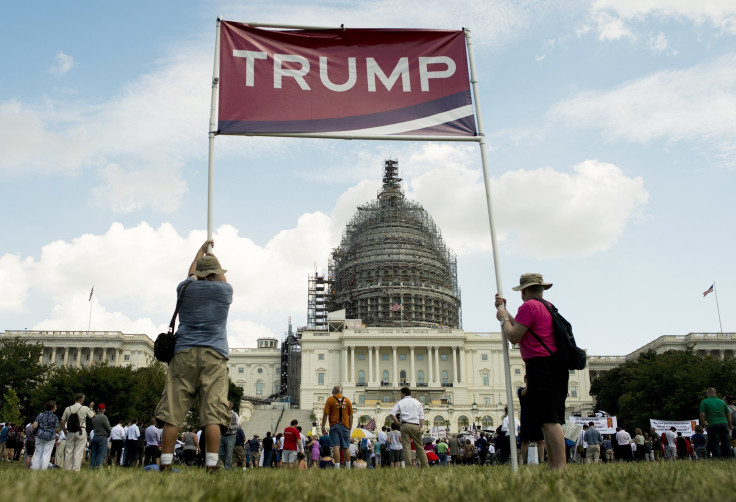Tea Party Support Falls To New Low: Republicans Now Oppose Conservative Movement That Influenced 2010 Elections

As the 2016 presidential campaigns move into full swing, a new poll indicates the tea party may be less of a factor in the election than it has been over the past five years. Support for the far-right conservative movement that helped Republicans reclaim control of the House of Representatives in 2010 is at an all-time low, according to the Gallup poll released Monday.
Just 17 percent of Americans polled said they support the tea party, while 24 percent oppose it and a record 54 percent neither support nor oppose the movement. This low represents a significant drop from the peak of 32 percent support the movement enjoyed in November 2010. But opposition has also dropped from its peak of 31 percent, which occurred right before last year’s midterm elections.
The tea party emerged in the early days of the Obama administration from angry voters who were tired of what they saw in the nation’s capitol and wanted to curb government spending by putting fresh faces in office. Since the 2010 midterm elections when many tea party candidates were successfully elected to office, support for the movement has generally eroded. It has not seen support reach 25 percent since August 2012.

Support has even dropped among Republican subgroups that were initially strong backers of the movement, according to Gallup. A majority of Independents who lean Republican initially supported the tea party in 2010 polls, but they have seen a 29-point drop, to 23 percent support, in the two most recent polls, conducted in November 2014 and October 2015. Conservative Republicans’ support of the tea party has also dropped by 21 percentage points from 63 percent initially to 42 percent now.
Despite the decline in support from 2010, Republicans increased their majority in the House in 2014 and gained control of the Senate. Still, some tea party candidates have succeeded in pushing congressional leadership to the right and grown in national recognition since their elections. These include Republican presidential candidates Sen. Marco Rubio of Florida and Sen. Ted Cruz of Texas, who were both swept into office with support from voters outside the Republican establishment. The two Senate freshmen stand at third and fourth place, respectively, in Real Clear Politics’ national polling average of Republican presidential candidates.
Still, the lack of energy for and against the tea party suggests that the movement’s time in the spotlight may be over. Already this election cycle has seen outsiders like Donald Trump, Ben Carson and Carly Fiorina perform strongly without the formal support of a recognizable movement such as the tea party.
The Gallup poll was conducted Oct. 7-11 and included 1,015 adults across the country answering questions via landlines and cell phones. There was a margin of error of plus or minus 4 percentage points.
© Copyright IBTimes 2024. All rights reserved.






















